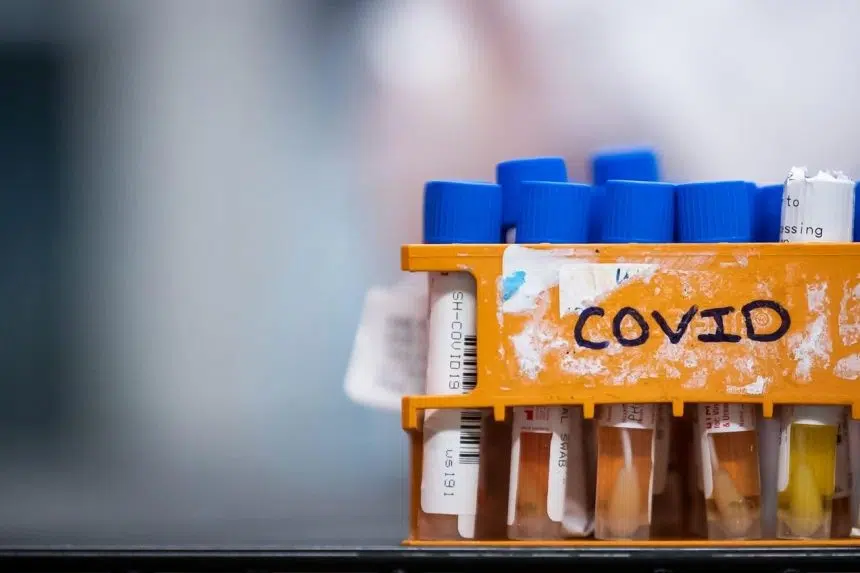As the weather gets colder and flu season returns, it’s not entirely clear what the COVID-19 virus is going to do.
This will be the first flu season since the pandemic started that COVID will be watched in the same way that other respiratory viruses are.
Dr. Joseph Blondeau — a microbiologist and head of clinical microbiology at Royal University Hospital and the University of Saskatchewan — said over the previous two years, the province was operating under a number of restrictions around this time.
“Masking was a much broader mandate, and with that, there became this natural reduction in transmission because people weren’t breathing on each other and they certainly weren’t spitting on each other, et cetera,” said Blondeau.
Speaking on Gormley on Tuesday, Blondeau called it a “look and see” kind of fall this year.
“I think it remains to be seen what this respiratory season is actually going to look like for us. I don’t know that any of us have a crystal ball to be able to predict exactly what the numbers are going to look like, but I think we can expect that we’re probably going to see a lot of respiratory virus activity,” he said.
Around the world, there are labs set up to look for new COVID variants, said Blondeau, and the early warning system would be triggered if they find a variant that’s different enough from the others and, in particular, is more virulent.
“I think that will be the tipping point for perhaps going back and looking at what needs to be done in order to protect the population, including what the impact of the current vaccine programs will be,” he said.
But Blondeau also said a new variant would have to be vastly different from what’s around now to not be affected by current vaccines. In other words, he said there is still some value in having protection through vaccination or having recovered from infection.
Vaccine safety continues to be a question for those either against or skeptical of the COVID vaccines. Blondeau said the most important thing in the development of those vaccines was that they were safe, and with the speed needed to get them out, it wasn’t possible to know everything about them.
“I think the safety data continues to show itself as being sort of not a concern with these vaccines. There are rare occurrences that do show up in some people unfortunately, but that’s with every vaccine, not just with the COVID-19 vaccines,” said Blondeau.
Along those same lines, Blondeau said transmission wasn’t the No. 1 priority for vaccine developers; preventing people from ending up the hospital and dying was the primary focus.
Blondeau said scientists will be collecting data on COVID and vaccine safety for years to come and sometimes it takes a long time to fully understand everything there is to know about vaccines.











